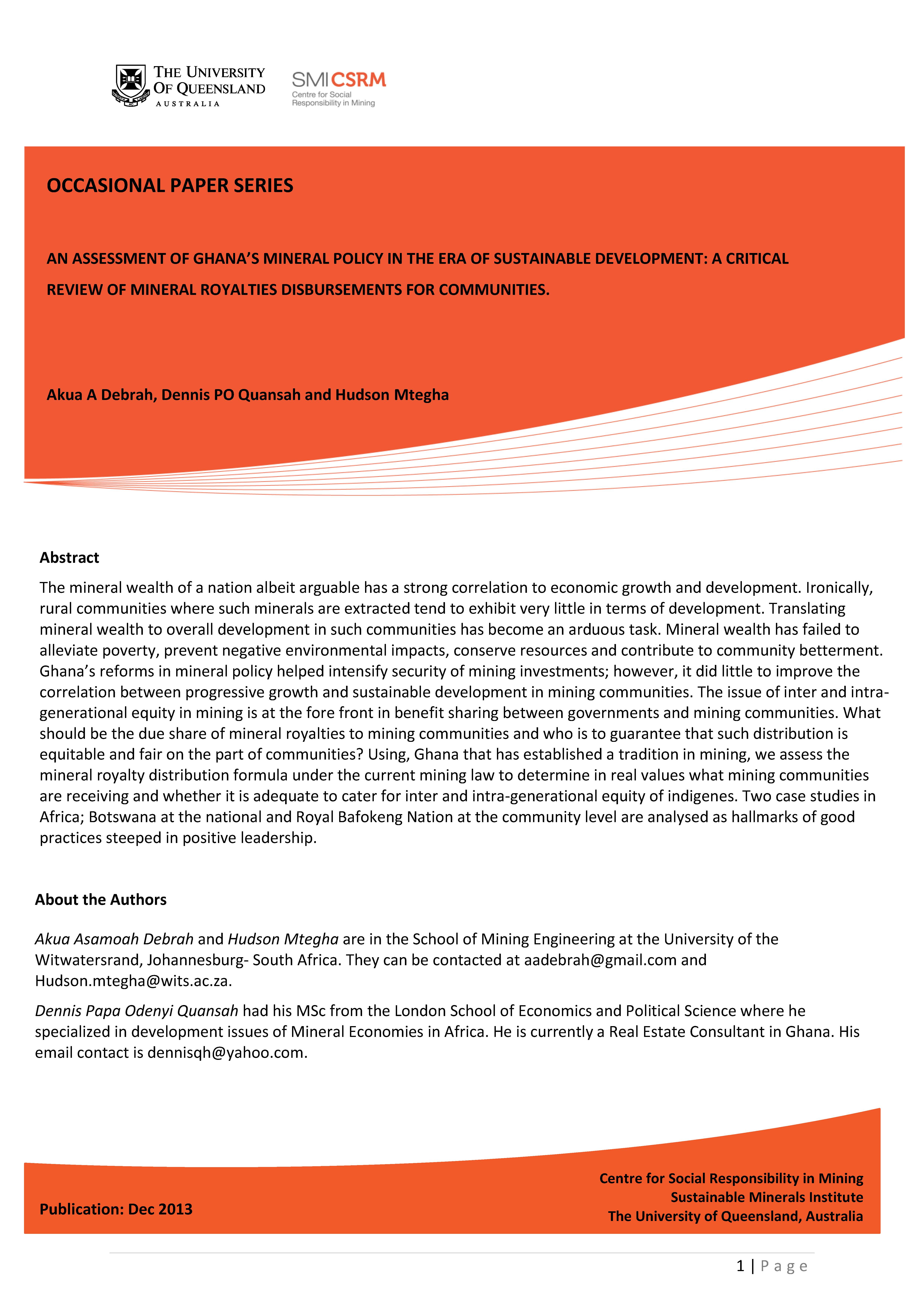An assessment of Ghana
Abstract
The mineral wealth of a nation albeit arguable has a strong correlation to economic growth and development. Ironically, rural communities where such minerals are extracted tend to exhibit very little in terms of development. Translating mineral wealth to overall development in such communities has become an arduous task. Mineral wealth has failed to alleviate poverty, prevent negative environmental impacts, conserve resources and contribute to community betterment. Ghana's reforms in mineral policy helped intensify security of mining investments; however, it did little to improve the correlation between progressive growth and sustainable development in mining communities. The issue of inter and intra-generational equity in mining is at the fore front in benefit sharing between governments and mining communities. What should be the due share of mineral royalties to mining communities and who is to guarantee that such distribution is equitable and fair on the part of communities? Using, Ghana that has established a tradition in mining, we assess the mineral royalty distribution formula under the current mining law to determine in real values what mining communities are receiving and whether it is adequate to cater for inter and intra-generational equity of indigenes. Two case studies in Africa; Botswana at the national and Royal Bafokeng Nation at the community level are analysed as hallmarks of good practices steeped in positive leadership.
Publisher: Centre for Social Responsibility in Mining
CITATION
Akua Asamoah Debrah, Hudson Mtegha & Dennis Papa Odenyi Quansah: An assessment of Ghana

